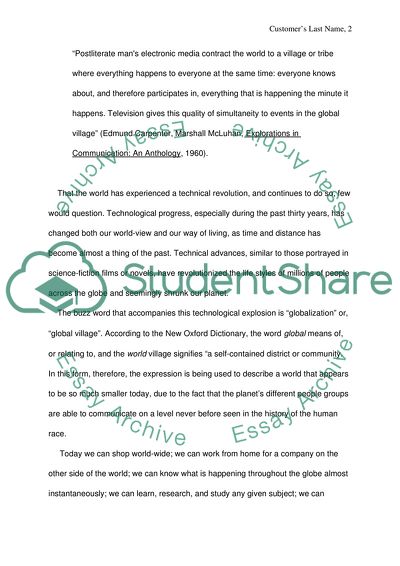Cite this document
(“Is The World Really Becoming A Global Village Essay”, n.d.)
Is The World Really Becoming A Global Village Essay. Retrieved from https://studentshare.org/miscellaneous/1510741-is-the-world-really-becoming-a-global-village
Is The World Really Becoming A Global Village Essay. Retrieved from https://studentshare.org/miscellaneous/1510741-is-the-world-really-becoming-a-global-village
(Is The World Really Becoming A Global Village Essay)
Is The World Really Becoming A Global Village Essay. https://studentshare.org/miscellaneous/1510741-is-the-world-really-becoming-a-global-village.
Is The World Really Becoming A Global Village Essay. https://studentshare.org/miscellaneous/1510741-is-the-world-really-becoming-a-global-village.
“Is The World Really Becoming A Global Village Essay”, n.d. https://studentshare.org/miscellaneous/1510741-is-the-world-really-becoming-a-global-village.


